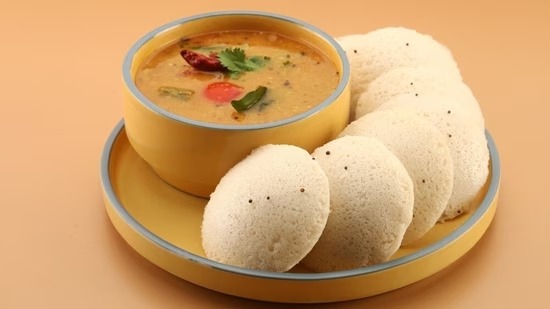 Image Source: Hindustan Times
Image Source: Hindustan Times
In a timely health advisory that blends science with simplicity, Dr Saurabh Sethi, a gastroenterologist trained at AIIMS, Harvard, and Stanford, has shared four actionable tips to improve gut health immediately. His recommendations, posted on social media and widely circulated on September 17, 2025, emphasize the importance of traditional Indian foods like idli and dahi, along with hydration and fibre intake. With digestive disorders on the rise and gut health increasingly linked to immunity, mood, and metabolism, these insights offer a practical roadmap for everyday wellness.
Dr Sethi’s approach is rooted in evidence-based nutrition and microbiome science, but it’s refreshingly accessible. His four-point framework focuses on prebiotics, probiotics, fibre, and water—elements that are easy to incorporate into daily routines without expensive supplements or restrictive diets.
Key Highlights From The Gut Health Advisory
- Eat more prebiotic-rich foods such as garlic, onions, and asparagus
- Include probiotic foods like dahi, idli, kimchi, and kombucha
- Increase intake of high-fibre foods like chia seeds, berries, and oats
- Drink at least eight glasses of water daily to support fibre absorption and gut function
Understanding The Four Pillars Of Gut Health
1. Prebiotics: These are non-digestible fibres that serve as food for beneficial gut bacteria. Dr Sethi recommends incorporating garlic, onions, and asparagus into meals. These ingredients help cultivate a diverse and resilient gut microbiome, which in turn supports digestion and immune regulation.
2. Probiotics: These are live microorganisms that add to the population of healthy gut bacteria. Indian staples like dahi and idli are excellent sources, thanks to their fermentation process. Other options include kefir, kimchi, and kombucha. Regular consumption of these foods can improve nutrient absorption and reduce inflammation.
3. Fibre: A high-fibre diet is essential for bowel regularity, satiety, and microbial balance. Dr Sethi suggests aiming for 30 grams of fibre per day through foods like chia seeds, berries, oatmeal, and leafy greens. Fibre also helps prevent acid reflux, constipation, and metabolic disorders.
4. Hydration: Water plays a crucial role in fibre metabolism and overall gut function. Without adequate hydration, fibre can lead to bloating and discomfort. Dr Sethi advises drinking at least eight glasses of water daily, especially when increasing fibre intake.
Cultural Relevance And Dietary Simplicity
What makes Dr Sethi’s advice particularly resonant is its cultural relevance. By highlighting Indian foods like idli and dahi, he bridges modern nutritional science with traditional wisdom. Idli, made from fermented rice and lentils, is not only easy to digest but also rich in probiotics. Dahi, a staple in Indian households, supports gut flora and cools the digestive tract.
These foods are affordable, widely available, and deeply embedded in Indian culinary habits, making them ideal choices for sustainable gut health. Unlike imported supplements or niche diets, they require no drastic lifestyle changes.
Broader Health Implications
Gut health is increasingly recognized as a cornerstone of overall well-being. A balanced microbiome influences everything from energy levels and skin health to mental clarity and immune response. Poor gut health has been linked to conditions such as irritable bowel syndrome, obesity, depression, and autoimmune disorders.
Dr Sethi’s recommendations align with global research that underscores the importance of microbial diversity and dietary fibre. His emphasis on hydration and fermented foods also reflects emerging trends in functional nutrition and integrative medicine.
Looking Ahead
As awareness around gut health grows, simple interventions like those suggested by Dr Sethi could become part of mainstream preventive care. His message is clear: you don’t need expensive treatments or complicated regimens to support your digestive system. A few mindful choices—rooted in tradition and backed by science—can make a profound difference.
Sources: Hindustan Times, The Insight Today, CNBC TV18.
Advertisement
Advertisement






